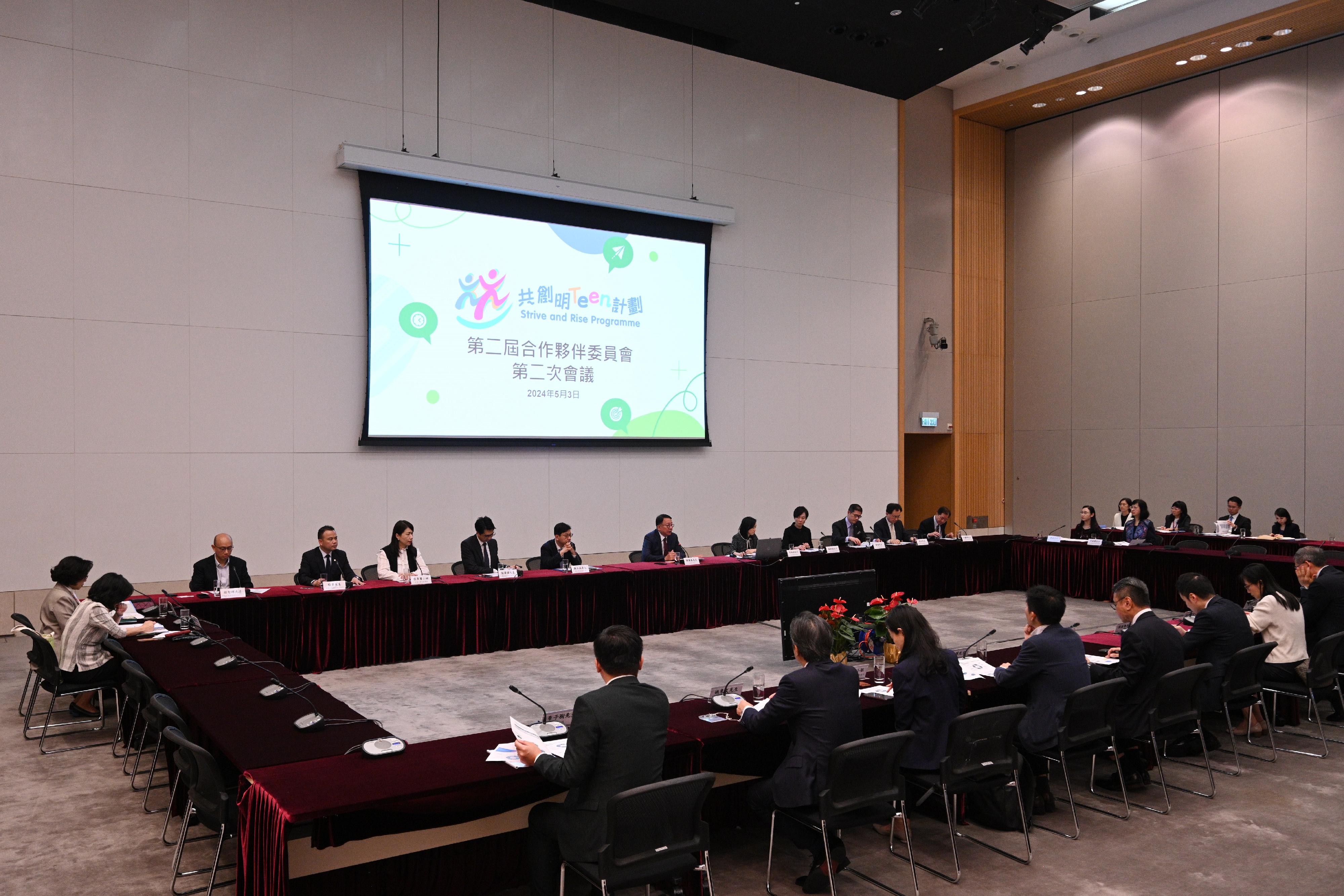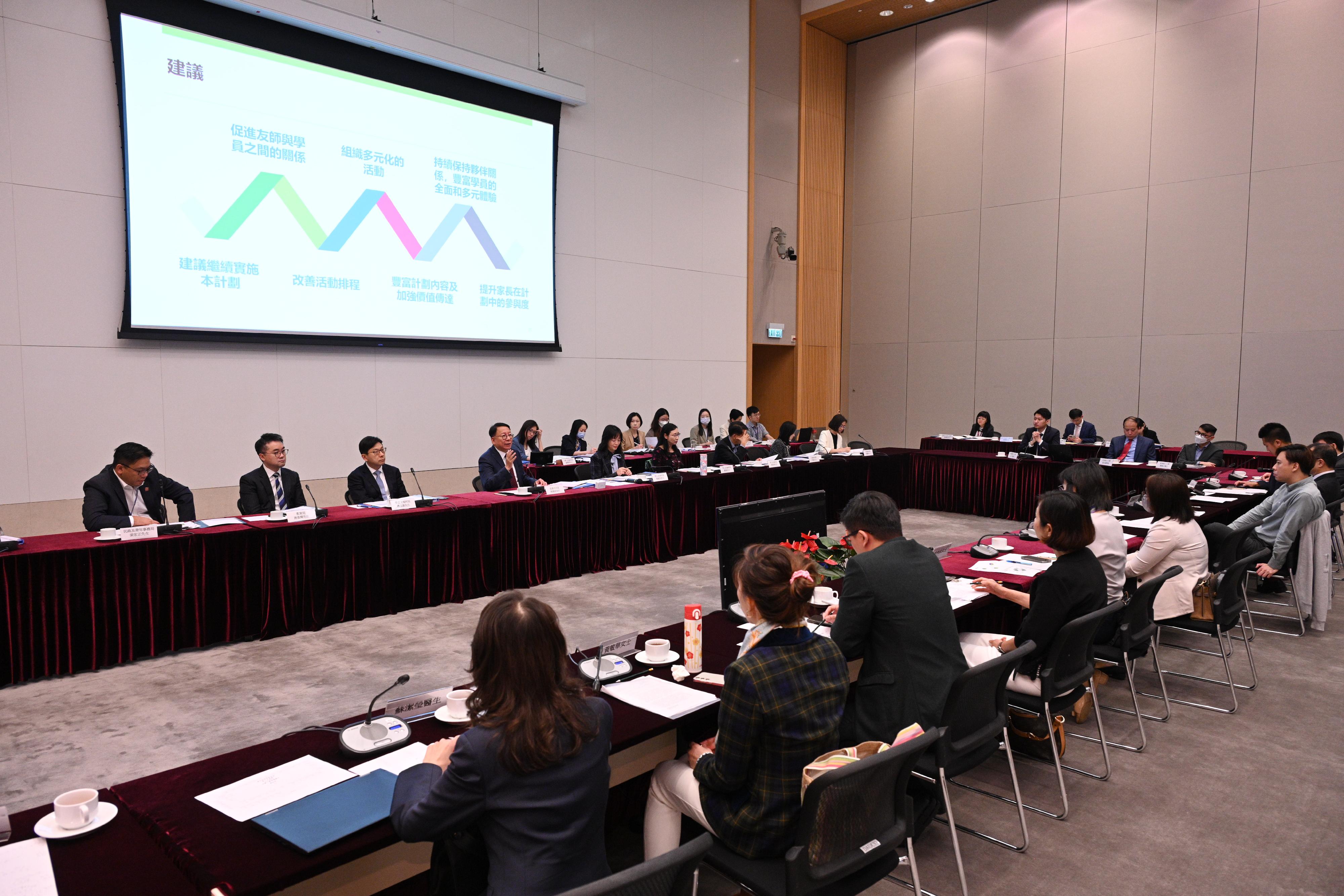The Chief Secretary for Administration, Mr Chan Kwok-ki, today (May 3) chaired the second meeting of the second-term Partners' Board under the Strive and Rise Programme and the sixth meeting of the fifth-term Commission on Poverty respectively to discuss the evaluation findings of the first round of the Strive and Rise Programme.
The Government earlier commissioned a research team led by the Head of the Department of Applied Social Sciences and Co-Director of the Policy Research Centre for Innovation and Technology of The Hong Kong Polytechnic University (PolyU), Professor Eric Chui, to evaluate the first round of the Strive and Rise Programme. The research team invited mentees to conduct self-assessments, and collected feedback from mentors and parents, regarding the mentees’ performances before and after the Programme. The evaluation was based on eight selected indicators, namely abilities in goal setting, abilities in financial planning, interpersonal skills and social network building, resilience, self-confidence, self-esteem, a sense of responsibility and empathy, and a sense of belonging to the community.
At their respective meetings, the Partners' Board and the Commission on Poverty were delighted to learn that, overall, mentees considered that they had achieved improvements across all indicators, and their mentors and parents agreed that the mentees had shown improvements likewise. Mentees' self-assessments show that they believe they have attained marked improvements in financial planning, self-confidence, interpersonal skills and social network building, and a sense of belonging to the community. Parents considered that mentees had made significant enhancements to their financial planning abilities, interpersonal skills and social network building, a sense of belonging to the community, and resilience; and mentors considered that the performance of mentees had improved noticeably across all eight indicators.
Furthermore, members were pleased to note that the enhancements for the second round of the Programme, introduced last year, dovetail with the evaluation findings and recommendations of the research team. Such enhancements include increasing the number of mentees to 4 000 with Secondary One to Four students covered; enriching the variety of group activities such as arranging more Mainland study and exchange tours; introducing mentorship groups; and establishing an Alumni Club to provide diversified social activities and internship opportunities for mentees who have successfully completed the one-year Programme. The operational details about the second round of the Programme have also been fine-tuned. Such fine-tuning includes enhancing the matching mechanism of mentors and mentees, and strengthening co-ordination between service operators and supporting organisations to enhance flexibility in arranging activities.
Mr Chan said, "The successful implementation of the first round of the Programme was attributed to the support and concerted effort of all sectors of society, including the Partners' Board and the Commission on Poverty. We thank the PolyU research team for its evaluation and professional analysis over the past year or so to affirm the positive impact brought about by the Programme to mentees in various aspects, as well as for its various recommendations to ensure the effective implementation of the Programme over time."
"I have every confidence that the Government will continue to forge ahead with the Partners' Board, the Commission on Poverty and society at large. With the tripartite collaboration among the Government, the business sector and the community, the Programme will help more grassroots youngsters broaden their horizons, reinforce their self-confidence and strive for upward mobility," he added.
Follow this news feed: East Asia







